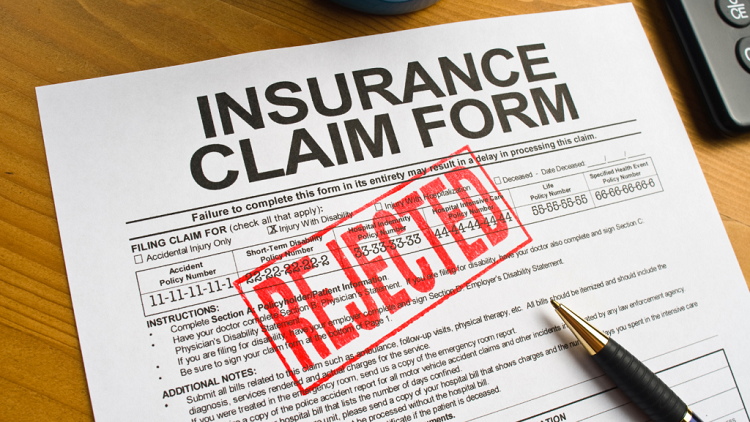One of the most frustrating experiences an insurance policyholder may face is dealing with a wrongful insurance denial. When an insurance company refuses to pay a fair claim, it can have serious financial and emotional consequences.
Insurance dispute attorneys, who are specialists in insurance dispute resolution, dedicate themselves to helping clients navigate these challenges, protect their rights, and secure the compensation they deserve.
In this blog, we will explore how a lawyer, with their knowledge of insurance policies and legal procedures, can assist in fighting wrongful insurance denials and what steps they can take to help you get the benefits you deserve.
Table of Contents
Understanding Wrongful Insurance Denials
An insurance denial is deemed “wrongful” when the insurer unjustly refuses to pay a valid claim based on policy terms. There are many reasons why an insurance company might deny a claim, such as:
- Inaccurate information or documentation: Sometimes, the denial occurs because of an error by the policyholder or the insurer’s claims department. For instance, a policyholder might provide incorrect details about the incident, or the insurer’s claims department might misinterpret the information.
- Policy exclusions: The insurance company may argue that the cause of loss is not covered under the policy terms, even if the policyholder believes otherwise.
- Failure to comply with policy conditions: Insurers often cite missed deadlines, lack of cooperation, or failure to comply with specific claim procedures.
- Misinterpretation of policy language: Because insurance policies can be complicated, insurers may reject claims because they don’t comprehend the terms of the policy.
While some denials are legitimate, others are wrongful, and that’s where insurance dispute attorneys can help.
How Insurance Dispute Attorneys Can Help
Reviewing the Insurance Policy
The first step an insurance dispute attorney usually takes after an insurance denial is reviewing your insurance policy thoroughly. Understanding all specific terms, conditions, and exclusions is critical in challenging the denial of your claim. If the denial results from misreading the policy, an attorney can identify errors and clarify how the policy’s terms should have approved your claim.
Investigating the Denial
After reviewing the policy, the attorney will investigate the events surrounding the denial. It could include gathering evidence, reviewing medical records for health or life insurance claims, consulting with experts, and ensuring the proper submission of all required documentation. The attorney’s job is to determine whether the insurance company followed the proper protocols when denying the claim and whether the denial was reasonable.
Negotiating with the Insurance Company
Once the attorney evaluates the case, they try to resolve it by negotiating with the insurance companies. Insurers usually deny claims, hoping the policyholder will give up or accept the decision.
A good lawyer can negotiate with insurance adjusters to ensure their clients receive a fair settlement. They are aware of the tactics insurers use and can challenge unfair practices, which may lead to claim approval without litigation.
Taking Legal Action
If negotiation fails, a lawyer can take your case to court. Filing a lawsuit against the insurer is often the last resort, but sometimes litigation is necessary to secure the compensation you deserve. Insurance dispute attorneys are experienced in insurance litigation and can represent you in court.
Your lawyer will argue your case, present evidence, and do whatever it takes to protect your rights. The fear of litigation sometimes makes the insurance company reconsider its decision and settle the claim out of court.
Holding Insurance Companies Accountable
Insurance companies are regulated by state laws, and wrongful denials may violate those regulations. A lawyer can help hold the insurer accountable for bad faith practices, such as denying a valid claim, delaying payments, or failing to investigate claims properly.
For example, it can be deemed a poor faith practice if an insurer rejects an insurance claim without a good explanation. If your case involves bad faith insurance practices, you may be entitled to additional damages beyond the original claim, including punitive damages in some cases.
Conclusion
Handling a wrongful insurance denial is not something you should do alone. Regardless of the type of insurance, an insurance dispute attorney can help you understand your rights and help you take the appropriate action. Don’t let a wrongful denial stand in the way of the coverage you’re entitled to. Contact an experienced attorney today to explore your legal options and ensure your claim gets the attention it deserves.

